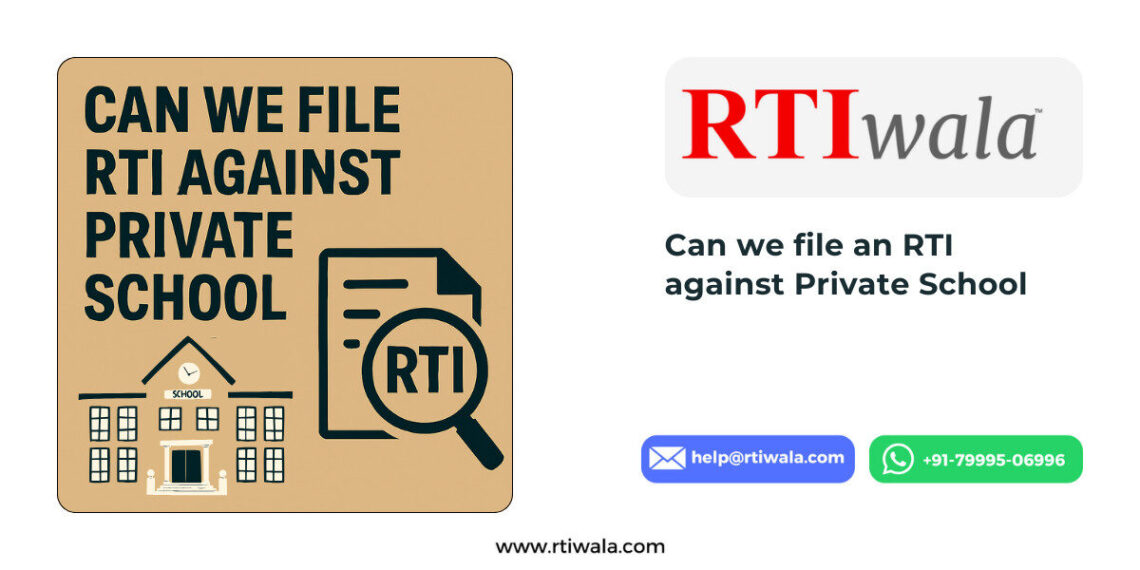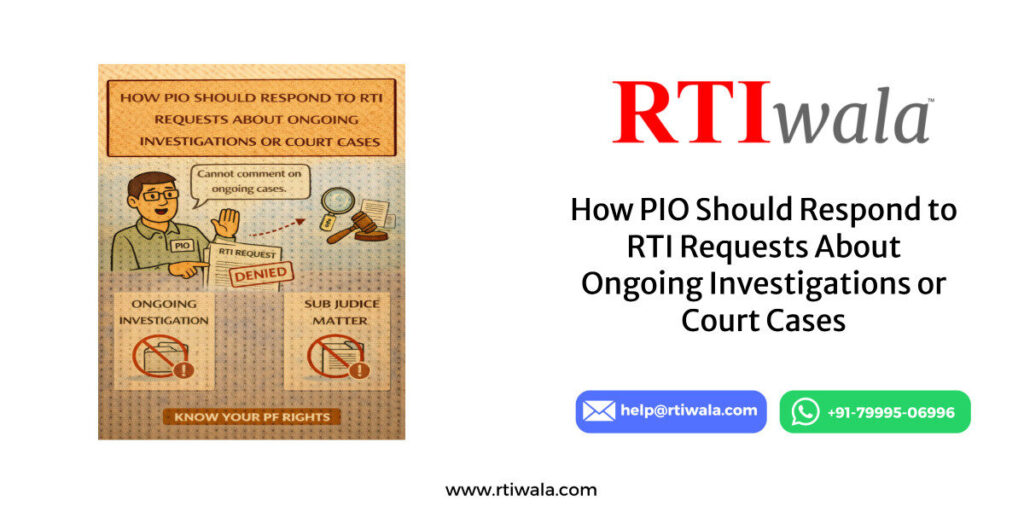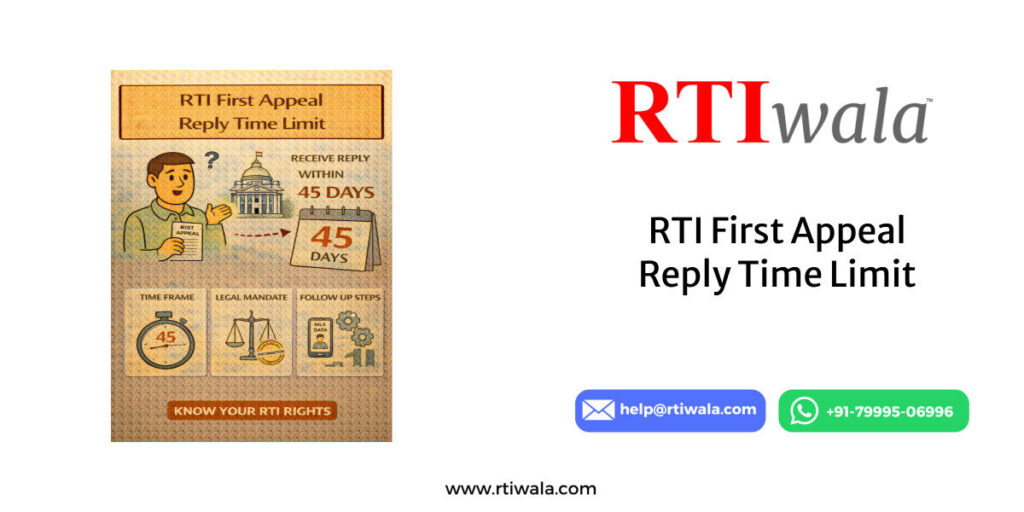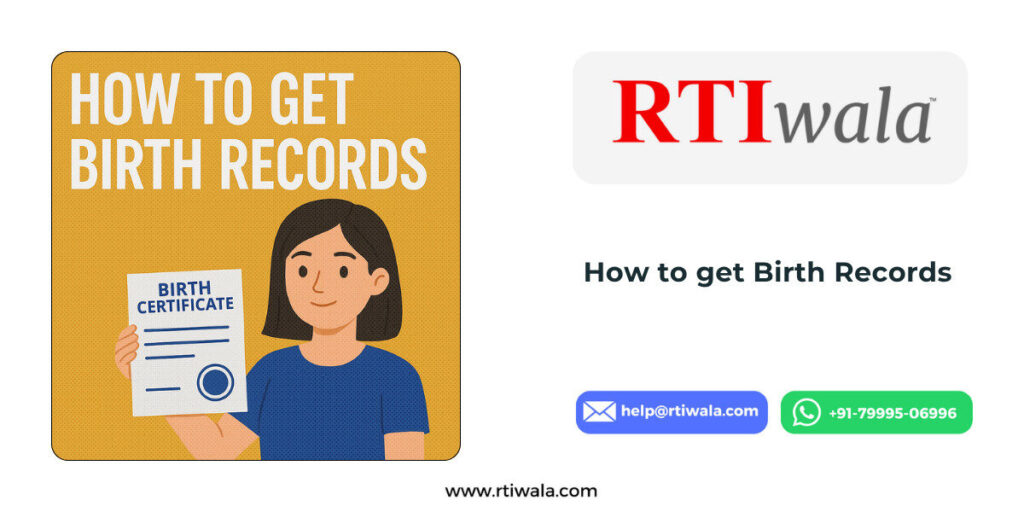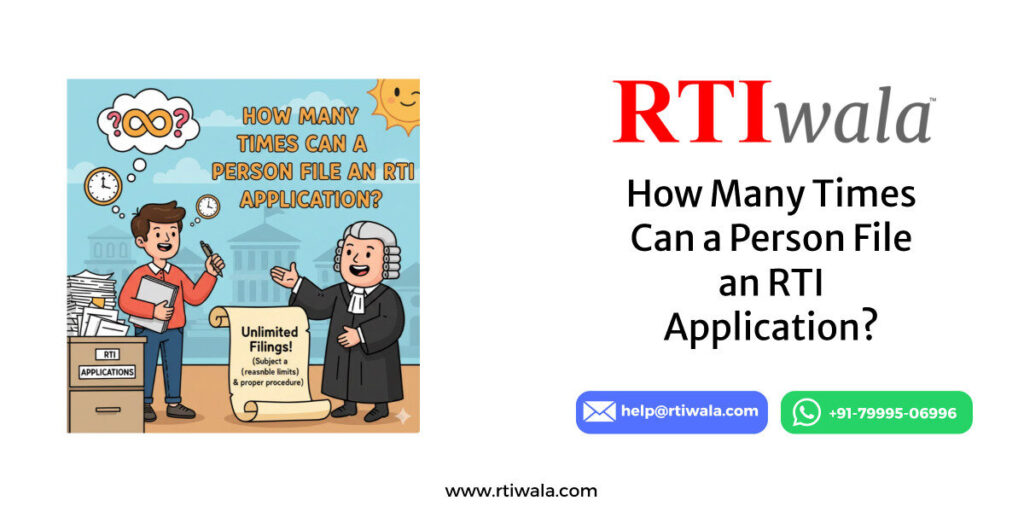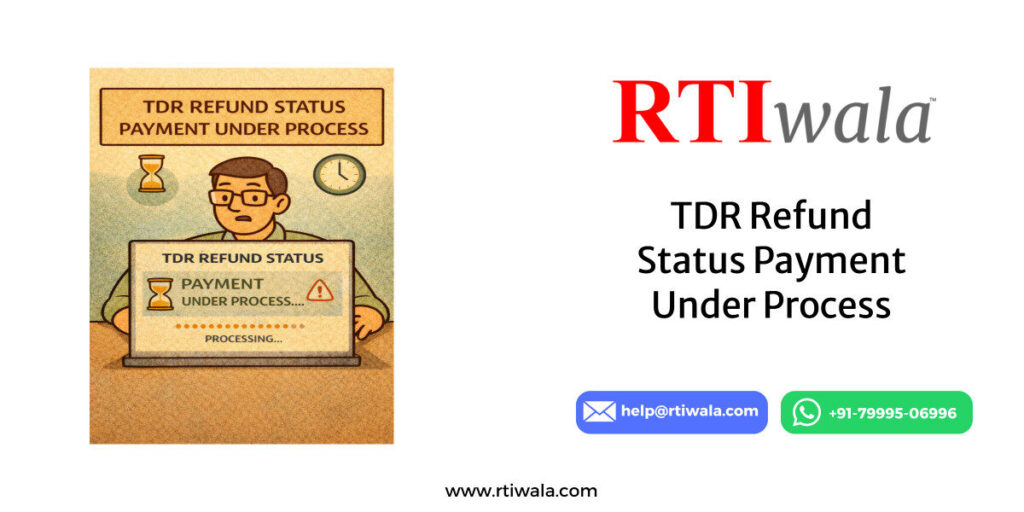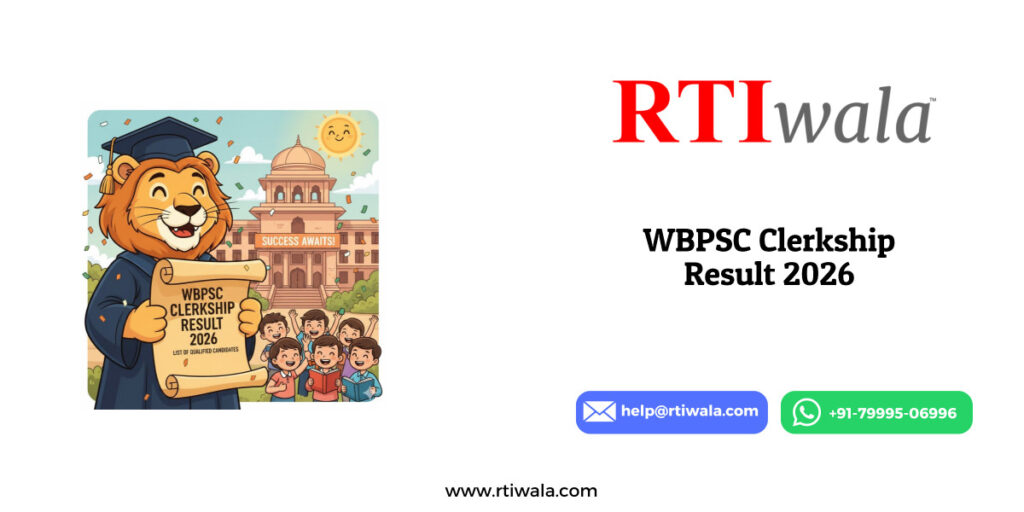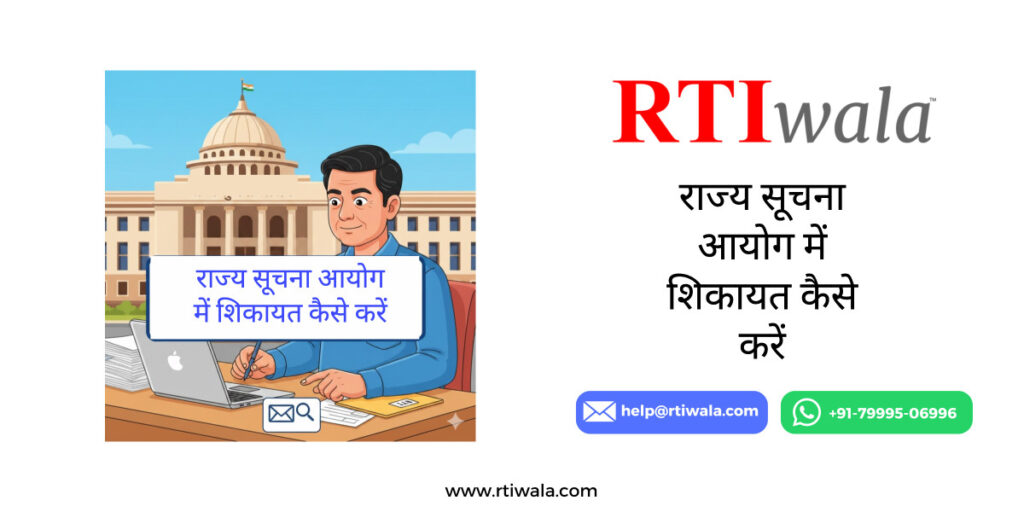Table of Contents
- Introduction: Why RTI in Private Schools is Important
- Can We File RTI Against Private School?
- What Information Can Be Asked from Private Schools?
- Fear Factor: Risks of Not Filing RTI
- Step-by-Step: How to File RTI Against Private School
- Why Choose RTIwala?
- FAQs on RTI Against Private Schools
- Conclusion: Transparency is Your Right
Introduction: Why RTI in Private Schools is Important
Private schools in India often charge heavy fees, yet lack transparency in admissions, donations, infrastructure funds, and even exam processes. Parents and students are left helpless when:
- Admission is denied without reason.
- Hidden charges and donations are demanded.
- Exam answer sheets are not shared.
- RTE (Right to Education) quota admissions are manipulated.
In such cases, RTI (Right to Information Act, 2005) becomes a powerful tool.
As an RTI applicant, you can legally demand answers and documents.
But filing RTI against a private school can be tricky, and that’s where RTIwala comes to your rescue.
Can We File RTI Against a Private School?
The short answer is yes — but not directly.
Private schools are not public authorities under Section 2(h) of the Right to Information (RTI) Act, 2005, which means you can’t file an RTI application to the school itself.
However, you can still get information about a private school indirectly through the government bodies that regulate or fund it.
Here’s how it works:
1.If the school receives government aid, land, or grants:
It becomes partially accountable under the RTI Act. You can ask for details like funding, teacher qualifications, student benefits, and infrastructure spending through the District Education Officer (DEO) or Block Education Officer (BEO).
2. If the school is affiliated to CBSE, ICSE, or a State Education Board:
You can file an RTI with the concerned board to obtain copies of inspection reports, affiliation status, compliance letters, or any complaints filed against the school.
3. If it falls under the Right to Education (RTE) obligations:
Every private unaided school must reserve 25% seats for Economically Weaker Section (EWS) students.
You can use RTI to ask the State Education Department for details like:
- Whether the school follows RTE norms
- Number of EWS students admitted
- Reimbursement details from the government
To get accurate information from private schools, simply file an RTI or use Anonymous RTI through RTIwala.
What Information Can Be Asked from Private Schools?
As a parent or student, you can demand:
- Fee structure and records of donations.
- Details of government grants received.
- Admission criteria and selection process.
- Information on RTE quota admissions.
- Infrastructure approvals, safety certificates, and teacher qualifications.
- Examination answer sheets or evaluation process (if under board regulations).
Many cases have shown that schools hide donations and misuse RTE seats. Filing an RTI exposes such discrepancies.
Risks of Not Filing RTI
- You may be forced to pay illegal donations without proof.
- Your child’s admission rights under RTE quota may be denied.
- Schools may increase fees anytime without justification.
- Exam rechecking and evaluation errors may go unnoticed.
- Corruption in private schools remains unchecked.
Example: In Delhi, parents exposed illegal fee hikes by filing RTI to the Education Department, which forced schools to refund lakhs of rupees.
If you don’t act, you risk losing money, your child’s right to education, and transparency forever.
Step-by-Step: How to File RTI Against a Private School
Filing an RTI against a private school may seem complicated — especially when you’re unsure which authority to approach or how to frame your questions. But don’t worry — here’s how you can do it the smart and effective way:
Step 1: Identify the Issue Clearly
First, pinpoint the exact concern — it could be an illegal fee hike, admission denial under RTE, poor infrastructure despite government grants, or exam result manipulation.
Knowing your specific problem helps in drafting precise RTI questions that compel the authority to respond with factual data — not vague replies.
Step 2: Find the Correct Authority
Private schools are regulated by education boards and local education departments, not directly by the RTI Act.
So, your RTI should be sent to:
- CBSE/ICSE Board – for affiliation and compliance issues
- District or State Education Department – for RTE-related matters or grants
- Fee Regulation Committee – for complaints about overcharging fees
Step 3: Draft a Legally Sound RTI Application
This is where most applicants go wrong. A poorly worded RTI often gets rejected or redirected, wasting valuable time.
Your questions must be specific, factual, and within the scope of Section 2(f) of the RTI Act.
That’s why thousands trust RTIwala Experts — they ensure your RTI is legally correct, properly formatted, and addressed to the right department, maximizing your chances of getting a clear reply.
Step 4: File Safely and Track Responses
You can file through the official government RTI portal, but it comes with limitations:
❌ Very few authorities listed
❌ No option to attach supporting evidence
❌ No help if your RTI gets ignored or rejected
❌ No refund or follow-up support
With RTIwala, you get:
Expert case verification before filing
Professionally drafted RTI in legal format
Continuous tracking and updates
Add-ons like First Appeal and Anonymous RTI for extra safety and privacy
Want To File RTI Without Revealing Your Identity
If you don’t want to file RTI under your personal name, use RTIwala’s Anonymous RTI service.
In this option, our company’s legal advocates file the RTI on your behalf — protecting your name and personal details completely.
Benefits of Anonymous RTI:
Your identity remains 100% confidential
RTI is filed through licensed advocates — ensuring credibility
Draft is prepared in legally strong language, increasing reply chances
Safer for sensitive matters involving schools, management, or authorities
This is the preferred choice for parents, teachers, and whistleblowers who want results without risk.
Step 5: Wait for an Official Reply — Hassle-Free
Once filed through RTIwala, you’ll receive your official government response in PDF format via email or WhatsApp, within the standard period — without any paperwork or confusion.
Transparent, legal, and completely secure.
📞 Need Help? Call: +91-7999-50-6996
The easiest and safest method is to file online RTI with RTIwala, where experts draft and submit your application professionally.
Why Choose RTIwala?
- Expert Drafting – Legally strong RTI applications.
- Appeal Support – If school or department delays reply.
- Nationwide Filing – From any state in India.
- Time-Saving – No need to visit offices; everything online.
- Trusted by Thousands – Parents and students use RTIwala for justice.
Call: +91-7999-50-6996 now!
File Online RTI Now
FAQs on RTI Against Private Schools
1. Can I directly file RTI to a private school?
No. You need to file it through the Education Department or affiliating board.
2. Can I ask for fee structure from private schools?
Yes, through RTI to Education Department/CBSE Board.
3. Can RTI help in exposing donation scams?
Yes, RTI can uncover illegal capitation fees.
4. Can I get my child’s answer sheet through RTI?
Yes, if the school is under CBSE, ICSE, or State Board.
5. How can RTIwala help in filing RTI against private schools?
RTIwala drafts legally correct RTIs and ensures they reach the right authority, saving your time and energy.
Conclusion: Transparency is Your Right
Private schools often misuse their power, but RTI Act empowers you to demand answers.
Whether it’s fee hike, RTE quota misuse, or exam discrepancies – filing RTI is your strongest weapon.
Don’t let your child’s future suffer due to lack of information.
With RTIwala, you can easily file online RTI and ensure justice.
Call: +91-7999-50-6996 now!












































